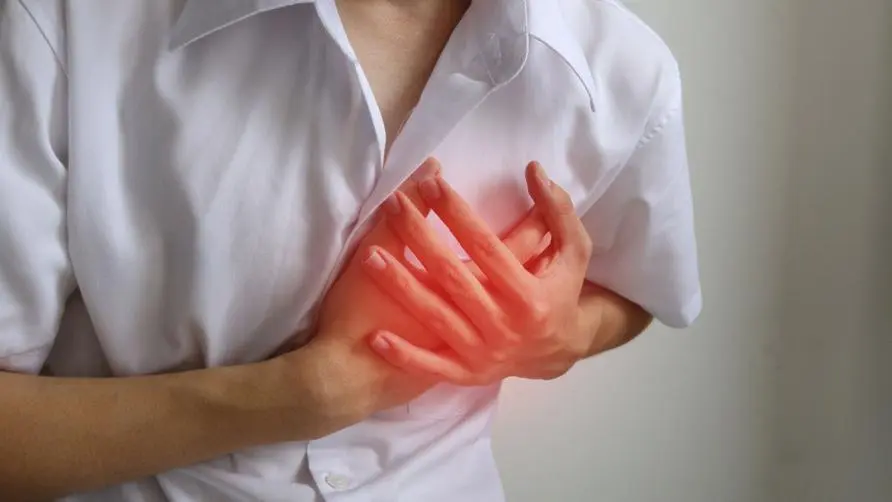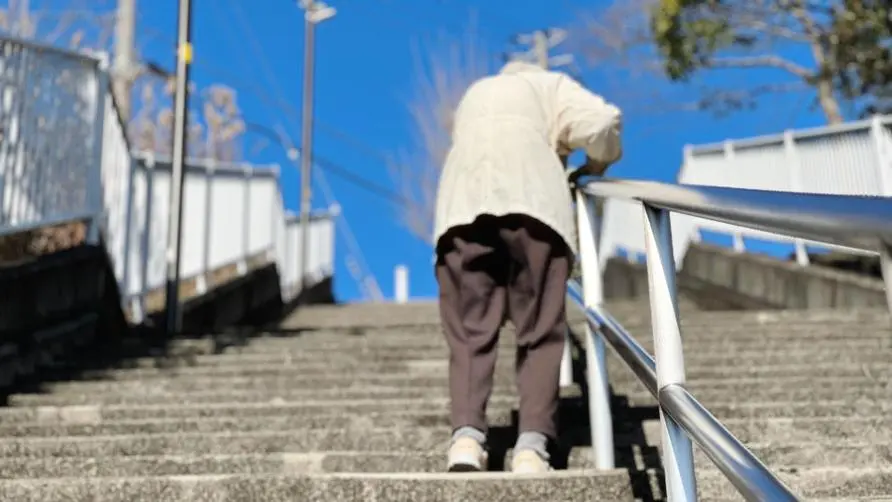The 26-year-old man had a "myocardial infarction" as soon as he got into the car and turned on the air conditioner at its strongest level! Key factors exposed by doctors: Pay attention to obesity and three highs

The high temperature has soared above 36 degrees in recent days. If certain groups of people are in extreme temperature environments, such as offices, homes, self-driving cars, or MRT, they should be careful about “myocardial infarction” caused by low air conditioning temperatures. Dr. Sun Deguang from the Department of Cardiology at the Cheng Ching Hospital Chung Kang Branch said that the high temperature has been sustained outdoors recently. For people at high risk of cardiovascular disease, they may be at risk of inducing myocardial infarction due to frequent entry and exit of severe temperature differences between indoors and outdoors.
In the scorching summer, the temperature difference between indoor and outdoor was so severe that he turned up the air conditioner and suffered a myocardial infarction.
Dr. Sun Deguang pointed out that recently, a 26-year-old male delivery driver had to get on and off the vehicle to deliver goods every day. During the delivery, he felt chest pain, cold sweat and shortness of breath, so he drove directly to the hospital for emergency treatment. After the diagnosis, it was found to be “acute myocardial infarction”.
Dr. Sun Deguang said that the man drove a truck to the emergency room at noon. After electrocardiogram, X-ray, cardiac ultrasound and other examinations, he consulted the cardiology department and was diagnosed with acute myocardial infarction. His right coronary artery was completely blocked due to thrombosis. Perform emergency cardiac catheterization immediately. Dr. Sun Deguang said that after thrombus aspiration, balloon dilatation and stent placement, the completely blocked right coronary artery was opened, smooth blood circulation was restored within 90 minutes, and he was lucky to save his life.
Dr. Sun Deguang pointed out that if it coincides with seasonal changes or the temperature difference between indoor and outdoor is too large, it is a key factor in inducing myocardial infarction. If the man had been in an environment where the temperature inside the car dropped sharply, causing blood vessels to constrict and blood pressure to rise, the heart might have been overloaded for a long time. In addition, men belong to the three-high-income group, and they need to frequently get in and out of the car during delivery work. The low temperature of the air conditioner and the hot weather outside the car make the body repeatedly endure the combined effects of severe temperature differences, which increases the risk of myocardial infarction.
Don’t turn the air conditioner to full strength when you get home! “Six groups” beware of the risk of myocardial infarction
Dr. Sun Deguang revealed that the patient was only 26 years old, but the examination found that the severity of his cardiovascular aging was like the quality of blood vessels of an elderly person aged 7 to 80 years old. The patient’s fatal risk of sudden myocardial infarction due to arteriosclerosis was estimated to be as high as 90%. . The man is 158 centimeters tall and weighs 90 kilograms. He also has the habit of smoking and staying up late. He prefers sweets and does not control his diet. He is a typical high-income group and is at high risk of myocardial infarction.
The man told Dr. Sun Deguang that when he drove to the emergency room for medical treatment that day, it was noon and the scorching sun was shining. At that time, I felt very hot all over my body after unloading the goods. As soon as I got back to the car, I turned the air conditioner to the lowest temperature to cool down. Unexpectedly, I suddenly felt a strong chest pain and couldn’t breathe smoothly, so I rushed to the nearest emergency room. Dr. Sun Deguang emphasized that when the body undergoes frequent “severe temperature differences” environmental changes, it will accelerate the occurrence of myocardial infarction, which may be the cause of acute myocardial infarction.
Dr. Sun Deguang emphasized that in recent years, it has been found that myocardial infarction has become younger, and 1 in every 8 myocardial infarction patients is young. Therefore, anyone who has a smoking habit, is obese, has three high blood pressure, has type 2 diabetes, has high cholesterol, or even has a hereditary family history are risk factors for myocardial infarction. If people often feel chest pain, difficulty breathing, If you have symptoms such as palpitations and cold sweats, it is recommended to seek diagnosis and treatment from a cardiologist as soon as possible.
Further reading:





